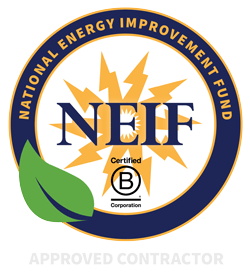7 Maintenance Tips to Keep Your Backup Power Flowing
- Generators

A backup generator only provides energy and electricity if the machine works when it is needed. This reliability is something that different companies tout as part of their generator sales marketing efforts. And that maintenance isn’t as complicated as it might seem. There are steps that you can take to maintain your generator to ensure that backup power comes on when you need it.
Seven Maintenance Tasks That Extend the Life of Your Generator
Whether you perform maintenance tasks around your home or you hire someone to do that sort of work, you’re probably aware of the amount of work that homes tend to create, especially if you’re trying to ensure that problems don’t come up when you least expect them. Some of the tasks in this list are things you can do yourself, and others, like the first, are things you might want to call in a professional for.
- Have Your Generator Serviced Regularly.
Generator companies offer a variety of services, including annual maintenance packages for different generator systems. For some units, you may be able to get away with maintenance checkups every two years, but there is a shelf life to some of the components inside the generator. Spark plugs, filters, and other parts will need replacement at some point. Staying on top of that means fewer surprises. - Keep an Eye on Oil and Fluid Levels.
Oil is necessary to protect the engine of your generator. It is a good idea to check the lubricant levels regularly, including after each use of the generator. Top these fluids off whenever necessary to ensure adequate levels. Many companies suggest keeping an extra bottle of oil handy, just in case. - Check Hoses and Coils Regularly for Holes, Rust and Other Issues.
Rust and corrosion put you at risk of problems when you least expect them. Corrosion can lead to problems with fuel and lubricant levels. This goes along with Tip #2: If there are holes or other issues that are not taken care of, you could find that fluid levels are inadequate and the unit may not start, or, the generator may start, but could damage the engine. - Get Your Generator Covered.
To protect your generator from the elements, especially the rain, it is important to create or purchase a cover or enclosure of some sort. You can also build a structure to cover your generator, similar to a doghouse, if you don’t want to buy one. - Protect the Motor From Burnout By Using the Appropriate Cords.
The length and gauge of power cords can help to lessen the voltage that comes out of your generator. This protects the motor of the generator, and it also protects the items that you are powering. Heavy duty power cords with the appropriate gauge and length limits the resistance to power flow. If you’re using a longer cord to avoid potential issues like carbon monoxide, you’ll want a 16 gauge wire, which has a limit of 10 amps, based on National Electric Code guidelines - Clean yard debris and grime from the unit regularly.
Leaves, grass clippings and dirt can build up over time and cause problems with your generator. Accumulations of dirt can slow down the motor or stop it altogether. Brush leaves and yard debris off of the outside of the system regularly so that nothing unexpected gets inside to tear up the motor. - Check the Battery and Connections of a Portable Generator
You’ll want to make sure that the battery terminal connections are tight, free of debris, and that they are free of corrosion. A well-connected battery lessens the chance of startup problems. Also, check to ensure that the battery is not leaking fluids anywhere. If you find that your battery has an issue, like if it is low on voltage or leaking fluids, its’ time to replace it. Contact your generator dealer, or an auto parts store to learn more about the appropriate battery for your portable generator.
Generators are similar, but no unit runs just like another. Depending on the style of generator that you have, they may run differently than your neighbor’s. Instead of seeking advice from neighbors and friends, it might be best to consult your manual or contact a dealer to find out what annual maintenance tasks are required. Because not everyone is confident in their abilities to maintain a mechanical system like a generator, there are often service packages that can bundle many of these maintenance tasks. There are manuals that explain how to maintain a backup power generator, for those who are comfortable undertaking these tasks on their own. Consult your paperwork or contact your dealer to see about scheduling annual maintenance to keep the backup power there when you need it.
For More Information on All Things Generator, Call NSHEC Today!
Contact North Shore Home Energy Today!
Check Out Our Current Specials!
Read The Great Things That Your Neighbors Are Saying About NSHEC.





